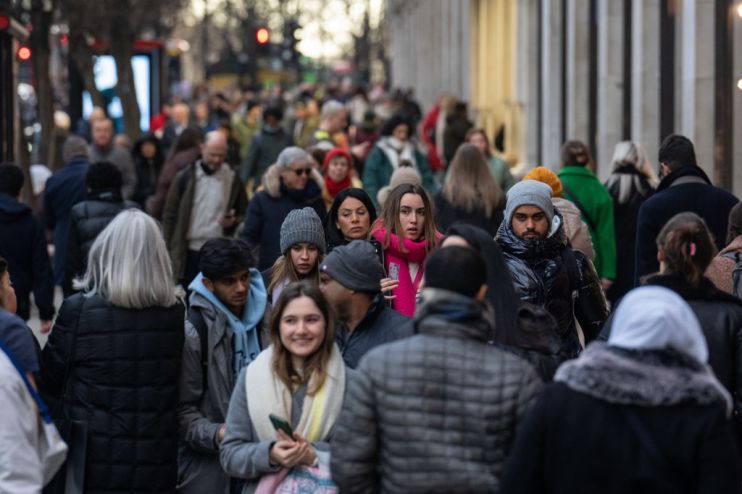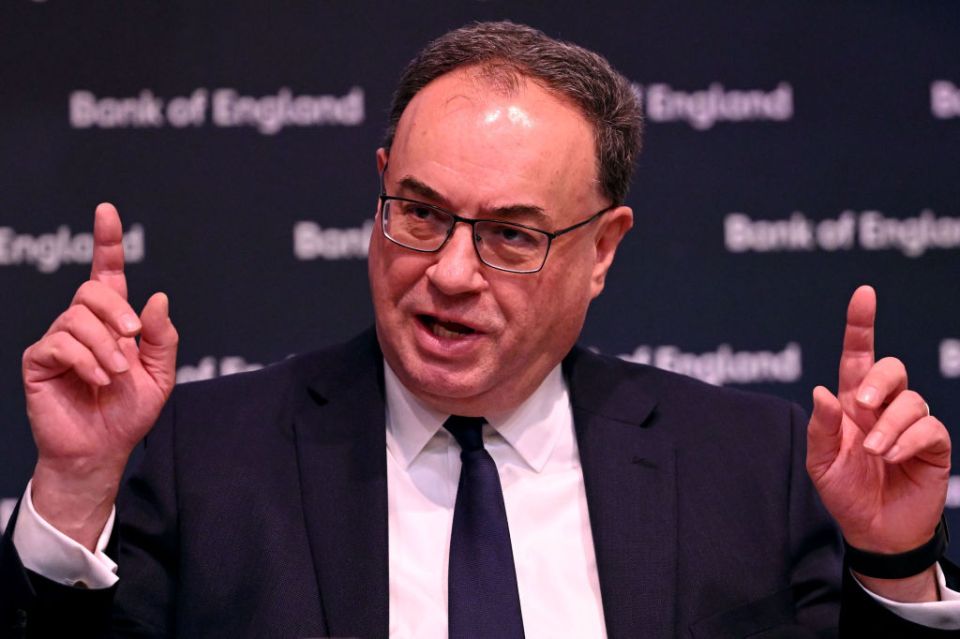Recession to be more than twice as bad as first feared, forecasters warn

The much touted coming recession in Britain will be twice as bad as first feared, new forecasts out today reveal.
Soaring prices coupled with the Bank of England’s efforts to tame them are set to deal a heavier blow to GDP than projected just a few months ago.
According to the EY Item Club, the economy will shrink 0.7 per cent this year, worse than the 0.3 per cent the organisation forecast in October.
The cumulative lost GDP will be about the same amount shed during the recession in the early 1990s that saw house prices collapse and the UK crash out of the European Exchange Rate Mechanism.
The recession will be a lot shallower than the ones sparked by the financial crisis and Covid-19 pandemic.
But, the government reining in energy bill support and raising taxes has put the economy on a weaker long term path.
The EY Item Club slashed its forecasts for each of the next three years, down to 1.9 per cent from 2.4 per cent in 2023 and to 2.2 per cent from 2.3 per cent in 2025.
Inflation is on track to decline quickly this year, pushed lower by international energy prices falling back to their pre-Russian invasion of Ukraine levels, to under four per cent, still nearly double the Bank of England’s two per cent target.
Living costs have climbed more than 10 per cent over the last year, the quickest acceleration in 40 years, leaving wages in their wake. This means households have less capacity to buy goods and services.
A series of nine successive interest rate rises by the Bank to take them to 3.5 per cent has tightened the screw on household finances.

As a result, consumer spending is on course to drop 1.4 per cent this year, fuelling the recession.
Experts said the likelihood of Brits raiding savings built up during lockdowns to maintain spending amid the cost of living squeeze is retreating due to fears over being laid off during the downturn.
“In theory, households drawing on the savings accumulated during the pandemic period could help mitigate the impact on consumer spending from high inflation, real wage reduction, and job losses. However, the latest data signals some reluctance among consumers to do so, suggesting that, for now, consumers are more concerned about their own financial prospects,” Martin Beck, chief economic adviser to the EY Item Club, said.
Prime Minister Rishi Sunak and Chancellor Jeremy Hunt deciding to scrap the 130 per cent investment tax relief in April will put businesses off to splashing the cash on new machinery and factories.
“After business investment grew a projected 5.2 per cent in 2022 – leaving it seven per cent below pre-pandemic levels – the EY ITEM Club now expects a fall of 0.8 per cent this year. Weaker business investment is one of the factors likely to slow the recovery from recession. Business investment growth of 3.7 per cent is forecast for 2024,” the forecasts said.